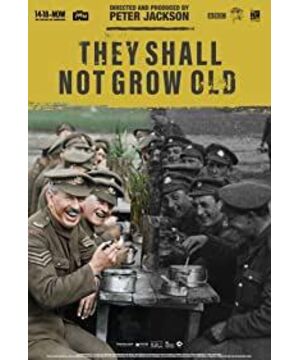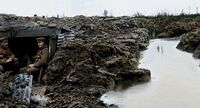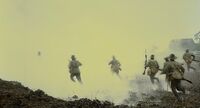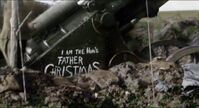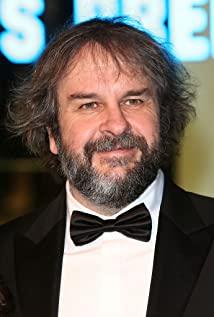The movie to watch this week is "They Don't Get Old Anymore."
I like watching war movies. I just watched "1917" recently. Like this movie, it is about World War I. The difference is that this is a documentary. At the beginning, I thought it was the video material of the year, but when I saw a colorful picture in the middle, the soldiers also moved, thinking it was a recent filming, and it was not until I read the film review that I realized that all the pictures were real images of that year. The production team repaired, colored, edited, moved the video data, and added the dubbing of the interviews with World War I veterans in the 1960s to complete this authentic documentary, which gives us the honor to face history in a hundred years.
One hundred years have passed since the First World War. I have read a lot of novels and film and television works about the First World War. Among the novels, "All Quiet on the Western Front" is my favorite, and this one in the movie can be ranked very high. When I learned World War I in the history class, there was always a kind of historical inevitability in it. From the assassination of Archduke Perdinand to the end of the surrender of Germany, there were causes and consequences, beginning and end, as if it were inevitable. What is the truth of history? It might be so in big history. At the beginning of the movie, the war broke out. Everything was so sudden. Britain and Germany were still playing on the field. When the news of the war came, people didn't know whether to continue the game or not. There were even many British people who thought they should play with the Germans. Hit the French. When the conscription began, the whole people were shrouded in a frenzy, and they happily signed up for the army. Underage teenagers even lied about their age just to go to the battlefield. This is how the war started out of nowhere. The inevitability of history belongs to big figures and big history, not to ordinary people.
After a short training session, they went to the battlefield as they wished. In the early days of the war, the lives of soldiers seemed to be very interesting. In the film, I saw them talking, laughing, fighting, playing music, or playing in competitions. They looked like elementary school students on a spring outing, and even the ditch with difficult living conditions seemed interesting. The film shows the daily life on the battlefield in an all-round way. Soldiers share bread, make tea with red-hot gun barrels, go to the toilet collectively on a stick, and then accidentally fall into a cesspool. It also describes young people visiting a brothel. An interesting story, so that the war is also covered with a layer of pink. This is difficult to see in other war-themed film and television works. Many war films blindly describe big scenes. Either the officers are pointing at the map in the command room, or the large troops are charging into the battle despite the hail of bullets. The difference in this film is that the people in the war are seen here, not big figures or big events, but people in the war, ordinary soldiers and young people.
When the war became fierce, young soldiers began to taste the pain of war, the romantic fantasy of war faded, and they began to face the cruelty of war. The young soldiers died in an instant, and the pictures flashed among the fallen corpses and the smiling faces before the war. One after another, smiling faces fell in a pool of blood. They were only teenagers. They don't get old anymore because they died in their teens, in this senseless war. When both sides ran out of manpower, the four-year war could no longer be fought. The surviving young people finally return to their long-lost homes, but instead of flowers and honors, they are greeted by indifference, disinterest and a wave of unemployment. These people who risked their lives to protect their homeland became aliens, no one was interested in their war, only to find themselves among their former comrades. The soldier returned to the shop where he worked before the expedition, but his colleague asked you where have you been recently, are you working night shift? Their sacrifices were meaningless, and when they returned to their hometown, it was as if they had gone to a foreign land.
View more about They Shall Not Grow Old reviews


